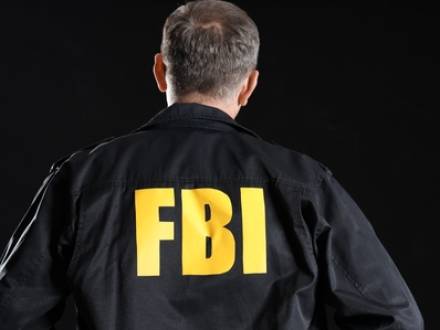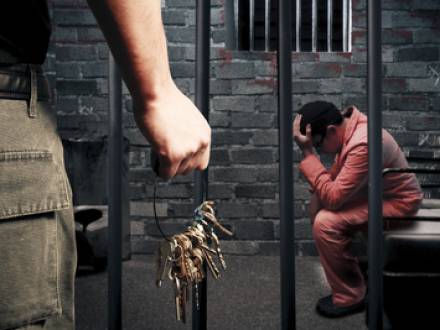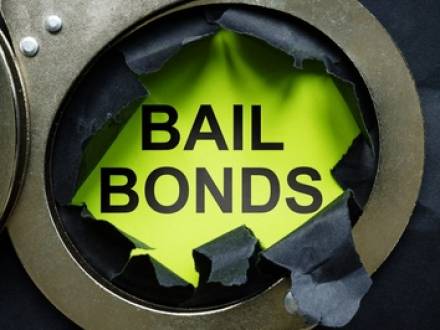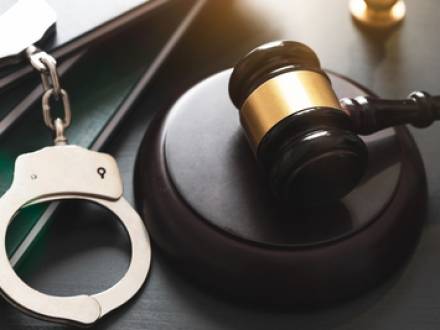Recent Blog Posts
Teacher Charged with Inappropriate Relationship with a Student
 A South Texas teacher faces charges that include one count of an inappropriate relationship with a student and one count of indecency with a child involving sexual contact. Both of these criminal offenses are second-degree felonies.
A South Texas teacher faces charges that include one count of an inappropriate relationship with a student and one count of indecency with a child involving sexual contact. Both of these criminal offenses are second-degree felonies.
The teacher worked for the Donna Independent School District in the Career Technical Education department. District officials say the teacher, who was released on $40,000 in cash/surety bonds, passed rigorous background checks but declined to provide further details.
If you are facing such serious charges in the state of Texas, it is important that you know the penalties for a conviction are extremely harsh. An experienced Plano, TX criminal defense lawyer is an essential first step in ensuring your rights and future are properly protected.
Can Digital Evidence Be Trusted in Computer Sex Crimes Cases?
 If you have been charged with possession of child pornography, you may be aware of the serious nature of this crime. The state of Texas prosecutes these criminal offenses zealously, and the penalties are extremely severe. Prosecutors must present evidence that definitively proves the existence of child pornography, so these cases often revolve around digital evidence.
If you have been charged with possession of child pornography, you may be aware of the serious nature of this crime. The state of Texas prosecutes these criminal offenses zealously, and the penalties are extremely severe. Prosecutors must present evidence that definitively proves the existence of child pornography, so these cases often revolve around digital evidence.
This digital evidence could include digital copies of child pornography materials or data that links the individual to the crime. If this data is not properly collected, the admissibility of the evidence may be challenged, and an experienced attorney will seek to have the evidence excluded. It is extremely important that you contact an experienced Plano, TX criminal defense lawyer to ensure that your rights are protected and that you receive the most zealous defense available.
Are You Under Federal Investigation for Child Pornography?
 Although both state and federal investigations are serious – and child pornography charges are especially serious – you may wonder whether you would know if you were under federal investigation. There are certain signs that you might not be aware of.
Although both state and federal investigations are serious – and child pornography charges are especially serious – you may wonder whether you would know if you were under federal investigation. There are certain signs that you might not be aware of.
If you have even the slightest belief that you are under federal investigation, you should speak to a knowledgeable Plano, TX criminal defense attorney with extensive experience in both federal crimes and sex crimes. You have much to lose if you are convicted federally of child pornography.
What Makes Child Pornography Charges Federal?
You could be charged federally for child pornography rather than under state law if the offense occurred in interstate or foreign commerce. Since the vast majority of child pornography is transmitted over the Internet, federal law is usually triggered, even if the image itself did not travel across state or international borders.
Texas Defenses for Indecency with a Child
 A Texas megachurch founder was recently indicted in Oklahoma on five counts of lewd or indecent acts with a child. The indictment stems from incidents dating back to the 1980s. The pastor resigned last summer as the senior pastor of Gateway Church, one of the largest "megachurches" in the United States.
A Texas megachurch founder was recently indicted in Oklahoma on five counts of lewd or indecent acts with a child. The indictment stems from incidents dating back to the 1980s. The pastor resigned last summer as the senior pastor of Gateway Church, one of the largest "megachurches" in the United States.
The alleged victim, who was 12 at the time, says the misconduct continued for four years. The statute of limitations is not applicable in this case because the pastor was not a resident or inhabitant of Oklahoma at any time. While nobody condones sexual acts with a child, this is a situation with considerable nuances because of the time that has passed, as well as the age of the child at the time.
What is Loliporn and Is It a Federal Offense?
 Animated child pornography – often referred to as "lolicon" or "loliporn" shows animated or computer-generated images that depict minors in sexual situations. Loliporn is federally illegal and may be considered illegal under Texas law. While possession of or promotion of child pornography is a state offense under Texas law, one of the key elements of this law is that the material must show an actual child.
Animated child pornography – often referred to as "lolicon" or "loliporn" shows animated or computer-generated images that depict minors in sexual situations. Loliporn is federally illegal and may be considered illegal under Texas law. While possession of or promotion of child pornography is a state offense under Texas law, one of the key elements of this law is that the material must show an actual child.
Since drawings, animations, and digital renderings do not involve real children, the issue becomes much more complex. If you are facing federal or state child pornography charges, it is extremely important that you speak to an experienced Plano, TX child pornography attorney. Child pornography convictions can have devastating, lifelong consequences, so getting ahead of these charges with the help of a highly skilled attorney is the best step you can take for your future.
Understanding Texas Bail Bonds
 If you are charged with a serious crime in Texas, you may want to be released on bail pending your trial. The Texas bail system ensures that the defendant shows up in court while allowing them to stay free before going to court.
If you are charged with a serious crime in Texas, you may want to be released on bail pending your trial. The Texas bail system ensures that the defendant shows up in court while allowing them to stay free before going to court.
The bail bond system is tricky, and making mistakes that can put you in jail is easy. An aggressive Texas criminal defense attorney can provide critical legal guidance to ensure you stay free as you await trial. Our attorneys are aggressive and tenacious, having won over 300 not-guilty verdicts and acquittals. We are prepared to assist with your bail and criminal case today.
How Do Texas Bail Bonds Work?
After you are arrested, the judge or magistrate will set a bail amount. This number is based on the crime’s severity, criminal history, flight risk, and the strength of your ties to the community. Bail is usually set within 48 hours of the arrest.
What Counts As Revenge Porn in Texas?
 It has become common for two people who are dating to share private photos and videos with each other. But when relationships end badly, some people get upset and, for one reason or another, share those photos with others. This is a serious legal mistake that can lead to criminal charges. If you have posted or sent an intimate image of someone else without their consent, you could be subject to Texas’ revenge porn law, which carries harsh penalties.
It has become common for two people who are dating to share private photos and videos with each other. But when relationships end badly, some people get upset and, for one reason or another, share those photos with others. This is a serious legal mistake that can lead to criminal charges. If you have posted or sent an intimate image of someone else without their consent, you could be subject to Texas’ revenge porn law, which carries harsh penalties.
At The Crowder Law Firm, P.C., our Texas sex crimes defense lawyers aggressively defend our clients. With over 300 not-guilty verdicts and acquittals, we know how to fight these cases and protect your future. If you are facing charges or are being investigated for revenge porn, understanding the law is the first step in building your defense.
What Is Considered Revenge Porn Under Texas Law?
In Texas, the official charge for revenge porn is "Unlawful Disclosure or Promotion of Intimate Visual Material." A person can be charged if they intentionally share or even threaten to share explicit images or videos of someone without their consent and under circumstances where the person who created the images or videos had a reasonable expectation of privacy.
Is Animated Child Pornography Illegal in Texas?
 Many people are surprised to learn that animated or computer-generated images depicting minors in sexual situations can be considered illegal under Texas and federal law. If you have come across this content or are concerned about whether certain materials in your possession could lead to criminal charges, it is important to understand how the law applies.
Many people are surprised to learn that animated or computer-generated images depicting minors in sexual situations can be considered illegal under Texas and federal law. If you have come across this content or are concerned about whether certain materials in your possession could lead to criminal charges, it is important to understand how the law applies.
And if there is any question about whether you have broken the law or could be investigated, contact a Texas child pornography defense lawyer immediately.
What Is Considered Child Pornography in Texas?
Under Texas law, possession or promotion of child pornography is a felony offense. The law prohibits the knowing possession, promotion, or distribution of any photos, videos, or other material that show a child engaged in sexual conduct. However, one of the key elements of this law is that the material must show an actual child.
What Are My Rights if I Am Charged with Child Endangerment in Texas?
 A charge of child endangerment in Texas is a serious criminal offense that can have lasting consequences. Whether the accusation stems from an alleged lapse in judgment, a misunderstanding, or an unfortunate accident, a conviction can lead to jail time, heavy fines, and loss of parental rights. If you have been charged with child endangerment, you need a Texas criminal defense attorney to help you understand your legal rights and how to protect yourself.
A charge of child endangerment in Texas is a serious criminal offense that can have lasting consequences. Whether the accusation stems from an alleged lapse in judgment, a misunderstanding, or an unfortunate accident, a conviction can lead to jail time, heavy fines, and loss of parental rights. If you have been charged with child endangerment, you need a Texas criminal defense attorney to help you understand your legal rights and how to protect yourself.
Child Endangerment Laws in Texas
Under Texas law, a person commits child endangerment if they intentionally, knowingly, recklessly, or with criminal negligence place a child under 15 in imminent danger of harm. Harm may include:
-
Bodily injury, physical harm, or death
Federal Gun Trafficking Charges Across the US-Mexico Border
 Gun trafficking across the U.S.-Mexico border is a serious federal offense that carries life-altering consequences. Those accused of this crime often find themselves facing aggressive federal prosecution, lengthy prison time, and huge fines. But being charged with a crime does not mean someone is guilty. The law says that everyone is innocent until proven guilty, and everyone has the right to a strong legal defense.
Gun trafficking across the U.S.-Mexico border is a serious federal offense that carries life-altering consequences. Those accused of this crime often find themselves facing aggressive federal prosecution, lengthy prison time, and huge fines. But being charged with a crime does not mean someone is guilty. The law says that everyone is innocent until proven guilty, and everyone has the right to a strong legal defense.
For many people, federal gun crime charges come as a devastating shock, affecting not only their own futures but also their families. Spouses, children, and loved ones who are dependent on someone jailed on accusations of gun crimes may face financial hardship and uncertainty about what comes next. If you or a family member has been accused of trafficking firearms across the border, it is critical to have a Texas federal criminal defense attorney who will fight for your rights and ensure you are treated fairly under the law.
















